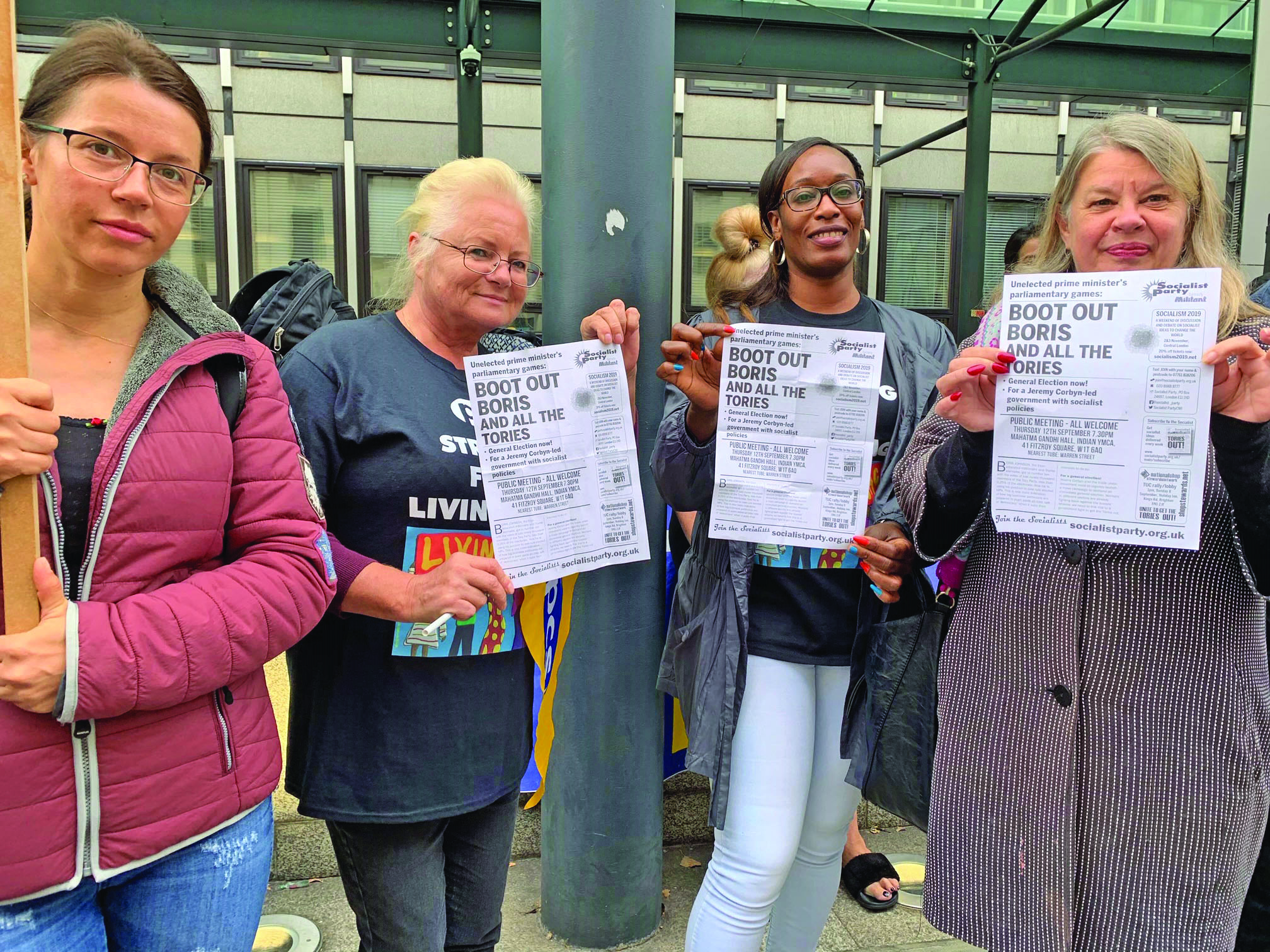PCS union general secretary election: Enthusiastic support for Marion Lloyd
The Public and Commercial Services (PCS) union general secretary ballot has started and it closes on 12 December.
Socialist Party member Marion Lloyd is one of three candidates. Her 39 Branch nominations outnumber Bev Laidlaw’s 16 and puts Marion close to the 62 nominations for incumbent Mark Serwotka. In other words, she can win this election. Activists should unite behind her and make this happen.
Early signs are hugely encouraging. In every town and city a large number of offices have already been leafleted. More of this activity is planned for the days and weeks ahead.
Those leafleting report an enthusiastic and positive membership response to Marion’s decision to challenge Serwotka. Her programme has struck a chord among members looking for a Union leadership which will fight for them on the issues of pay, jobs and equality.
Marion told the Socialist “I’ve been literally overwhelmed by the demand for my election material and delighted by the response to it. I sensed all along the mood among our members is for change and for a fresh approach. I have become more and more convinced of this as the election has got underway.”
Marion’s pledge to make no material gain by staying on her current civil servant’s wage is well received. As is her commitment to publishing details of her union payback arrangements. Serwotka makes no payback to the union despite his original undertaking to do so. His election material makes no mention of this.
Marion’s criticisms of Serwotka’s pay strategy which led to two failed pay strike ballots is widely shared. The different approach – a disaggregated ballot – which Marion argued for has been used by the University and College Union in their recent successful strike ballot (see page 11). Had PCS adopted this approach, 21 PCS groups would now have a legal strike mandate.
Marion’s commitment to a Union accountable to its members and controlled by its lay structures has gone down well. As president of the PCS’s Business, Energy and Industrial Strategy government department Group, Marion fought against Serwotka’s decision to give control of resources to non-elected union officials.
The election of union full-time officers is a democratic demand that Marion supports. In the past, so did Serwotka but there is no mention of this by him now.
Marion supports the election of a Corbyn-led government on an anti-austerity programme, but she makes it clear that this doesn’t mean we should be uncritical cheerleaders for Labour. And unlike the other candidates she is opposed to Labour Party affiliation.
- If you can help or want more information contact [email protected]








